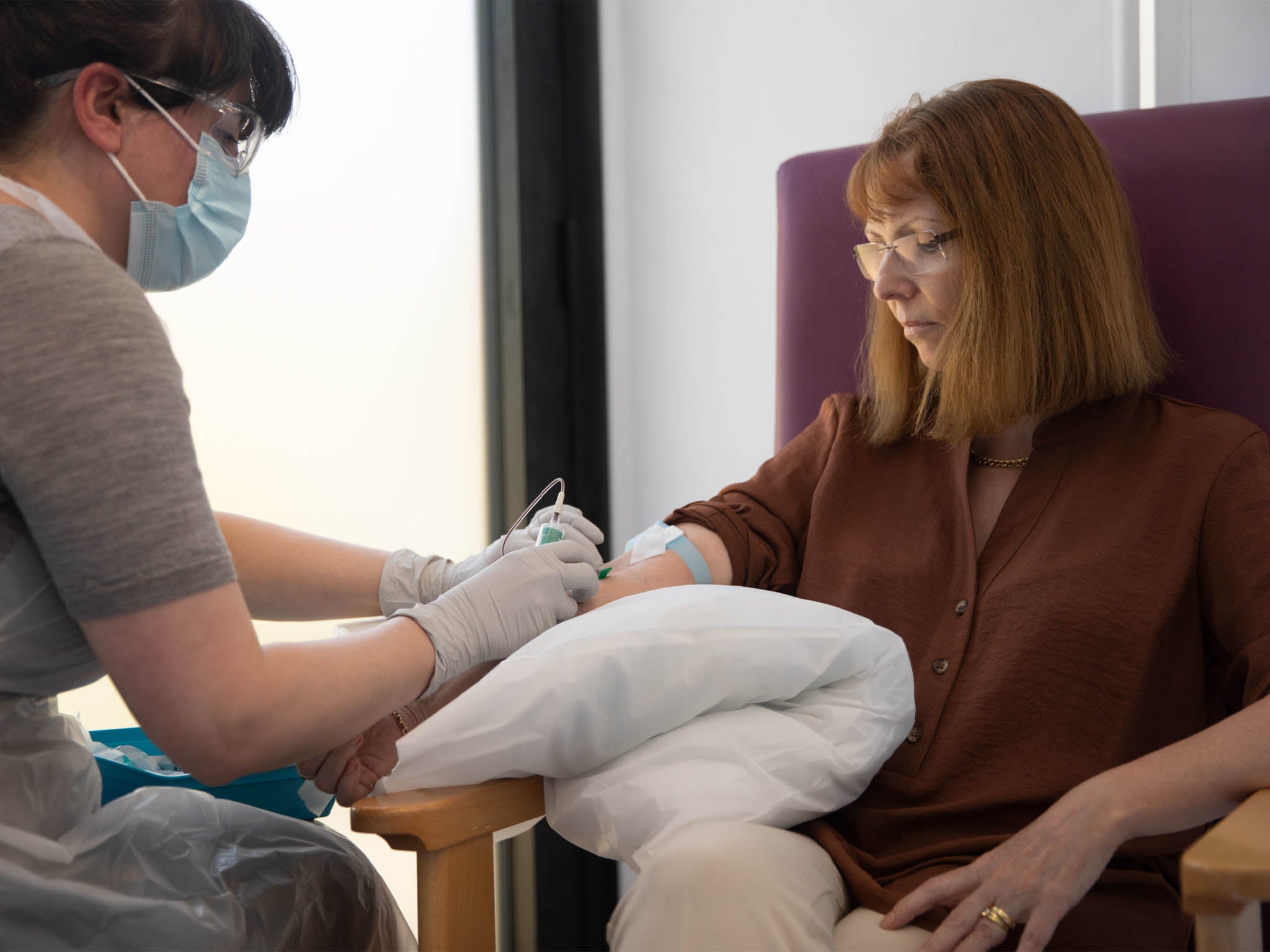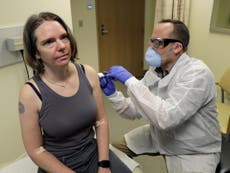Britain moves closer to Covid-19 vaccine ‘human challenge’ trials that infect volunteers
British biotech firms have signed contract with government to create strains of coronavirus

Your support helps us to tell the story
From reproductive rights to climate change to Big Tech, The Independent is on the ground when the story is developing. Whether it's investigating the financials of Elon Musk's pro-Trump PAC or producing our latest documentary, 'The A Word', which shines a light on the American women fighting for reproductive rights, we know how important it is to parse out the facts from the messaging.
At such a critical moment in US history, we need reporters on the ground. Your donation allows us to keep sending journalists to speak to both sides of the story.
The Independent is trusted by Americans across the entire political spectrum. And unlike many other quality news outlets, we choose not to lock Americans out of our reporting and analysis with paywalls. We believe quality journalism should be available to everyone, paid for by those who can afford it.
Your support makes all the difference.“Human challenge” trials of potential COVID-19 vaccines, where volunteers are deliberately infected with the disease, could become a reality after a British biotech firm said it was in advanced talks with the government to create and provide strains of the virus.
Preliminary work for the trials, which aim to speed up the process of determining the efficacy of a vaccine candidate, is being carried out by hVIVO, a unit of pharmaceutical services group Open Orphan ORPH.L, the company said.
“We are in discussions with numerous parties including the UK government around a COVID-19 challenge study, and once any of those contracts are signed we will make an announcement,” said Open Orphan’s executive chairman, Cathal Friel.
If agreed, this would involve creating a human challenge study model that could be used should such trials gain ethical and safety approval from regulators.
The UK government’s department for business, energy and industrial strategy (BEIS) was not immediately available for comment.
Supporters of human challenge trials say they are a good way to cut short the often lengthy process of testing potential vaccines on tens of thousands of volunteers in the real world who go about normal life and are monitored to see if they contract the disease or are protected from it.
In these tightly-controlled trials, volunteers are given a vaccine and then about a month later are deliberately infected with the disease under controlled conditions. They are then isolated in a quarantine facility and monitored to see if they become sick or if the vaccine protects them.
Critics say deliberately infecting someone with a potentially deadly disease for which there is currently no effective treatment is unethical.
Leading vaccine developers AstraZeneca AZN.L, Sanofi SASY.PA, BioNTech BNTX.O, Moderna MRNA.O and Inovio INO.O said last month that their respective vaccine candidates were not involved in the programme.
Germany's CureVac 5CV.DE on Friday said participation in a human challenge trial had not been decided yet because the circumstances would have to be clearer.
Johnson & Johnson JNJ.N has previously said it was evaluating the potential benefit of such trials.
Any human challenge trials conducted in Britain would have to be approved by the Medicines and Healthcare products Regulatory Agency, the healthcare regulator that looks into safety, ethics and protocol.
Reuters


Join our commenting forum
Join thought-provoking conversations, follow other Independent readers and see their replies
Comments